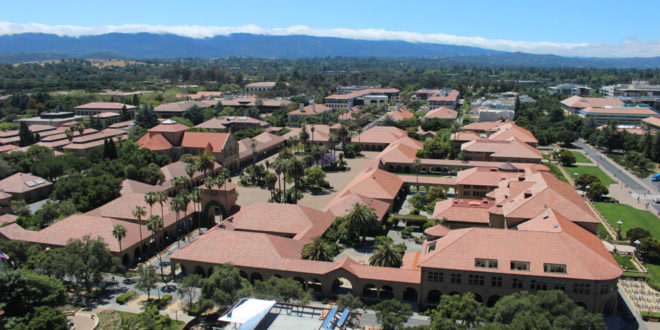Stanford is now soliciting community input for the University’s long-range planning process, which will craft Stanford’s big-picture plan for the next decade and beyond.
The planning process, which last occurred over 15 years ago, will plot a path for University growth in four broad categories: education, research, community and engagement beyond Stanford. At a town hall in February, Provost Persis Drell called long-term planning the most important activity the University would undertake in the coming year.
In a Thursday email, University President Marc Tessier-Lavigne and Provost Drell invited all 30,000 of Stanford’s community members to submit ideas for Stanford’s improvement online at a newly launched website.
“We want and need your participation,” Tessier-Lavigne and Drell wrote. “Diverse perspectives are critical to a comprehensive vision for Stanford’s future.”
Proposals can be submitted up until July 1, but the University leaders encouraged students, faculty, staff and postdoctoral scholars to begin sharing their thoughts immediately. Community members may make proposals as individuals or in groups such as dorms or task forces, and submissions must be attached to a name to ensure that those involved in the planning process can reach out for more information if needed.
Four steering committees, one for each of the process’s four overarching categories, will consider all ideas submitted in their topic area, seeking to organize and synthesize rather than prune down the suggestions. Then, in the fall, the University’s executive leadership will look through the information the committees assemble and create a plan based on it.
The steering groups are composed of students, faculty, staff and postdoctoral scholars in order to represent all segments of the Stanford population. The education committee will be chaired by Stacey Bent Ph.D. ’92, professor of engineering and senior associate dean for faculty and academic affairs, as well as Bryan Brown, associate professor of education and associate dean for student affairs. The research group is headed by Robert MacCoun, professor of law, and Kathryn Moler ’88 Ph.D. ’95, professor of applied physics and physics and senior associate dean for the natural sciences. The community-focused committee is led by Ramesh Johari, associate professor of management science and engineering, and Susan McConnell, professor of biology. Finally, the committee examining engagement beyond Stanford is chaired by Juliet Brodie, professor of law and associate dean of clinical education, as well as Joseph Woo, professor of cardiac surgery.
Beyond submitting ideas online, those hoping to get involved in the planning process can attend an upcoming town hall that will explain the University-wide initiative in more detail. The town hall will take place at noon on April 21 in Cubberley Auditorium.
Contact Hannah Knowles at hknowles ‘at’ stanford.edu.
